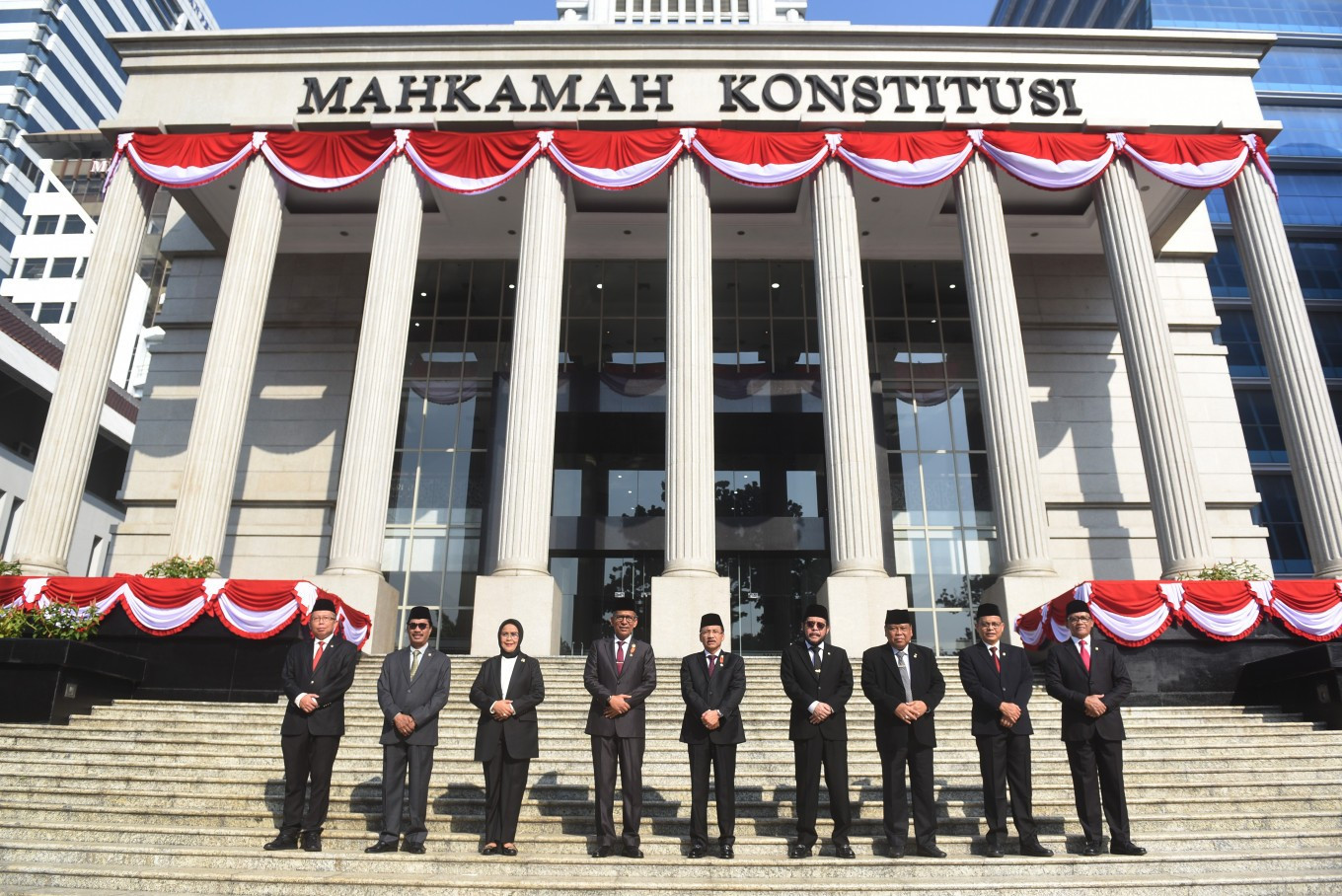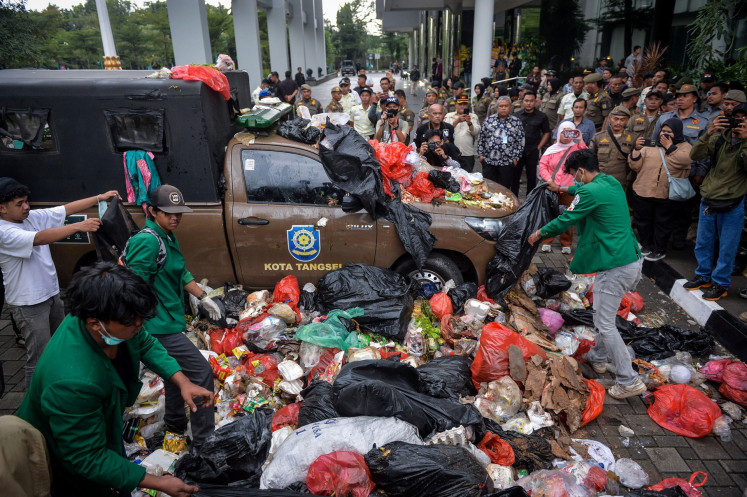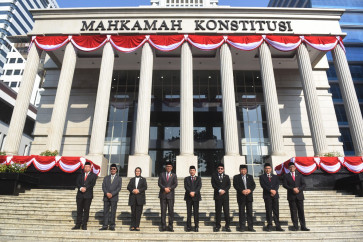Popular Reads
Top Results
Can't find what you're looking for?
View all search resultsPopular Reads
Top Results
Can't find what you're looking for?
View all search resultsAnalysis: Free basic education ruling may strain budget, disrupt private school sector
Change text size
Gift Premium Articles
to Anyone
 Constitutional Court Chief Justice Suhartoyo (center) accompanied by constitutional judges (from left to right) Arsul Sani, Daniel Yusmic Pancastaki Foekh, Enny Nurbaningsih, Saldi Isra, Anwar Usman, Arief Hidayat, M. Guntur Hamzah and Ridwan Mansyur take a group photo in front of the constitutional pillars after attending the commemoration ceremony of the 21st Anniversary of the Constitutional Court at the Constitutional Court Building, Jakarta, on Tuesday, June 13, 2024. Chairman of the Constitutional Court Suhartoyo in his mandate said the level of public trust and the image of his institution was getting better, especially after deciding the dispute over the results of the 2024 presidential and legislative elections. (ANTARA FOTO/Indrianto Eko Suwarso)
Constitutional Court Chief Justice Suhartoyo (center) accompanied by constitutional judges (from left to right) Arsul Sani, Daniel Yusmic Pancastaki Foekh, Enny Nurbaningsih, Saldi Isra, Anwar Usman, Arief Hidayat, M. Guntur Hamzah and Ridwan Mansyur take a group photo in front of the constitutional pillars after attending the commemoration ceremony of the 21st Anniversary of the Constitutional Court at the Constitutional Court Building, Jakarta, on Tuesday, June 13, 2024. Chairman of the Constitutional Court Suhartoyo in his mandate said the level of public trust and the image of his institution was getting better, especially after deciding the dispute over the results of the 2024 presidential and legislative elections. (ANTARA FOTO/Indrianto Eko Suwarso)
T
he Constitutional Court's ruling on May 27, mandating that central and regional governments provide free education at elementary and junior high levels for all public and private schools, aims to promote equality in access to basic education. However, it is feared this decision may place a substantial financial burden on the state budget and have far-reaching implications for the operations of private schools in Indonesia, particularly premium ones.
Currently, 20 percent of the state budget must be allocated for education. As a consequence, both public and private schools in Indonesia receive operational support through the School Operational Assistance (BOS) fund, allocated equally across institutions. Private schools, however, often supplement this with independent funding, frequently imposing additional charges on students or parents as contributions to the education process. The status of premium and international schools, which are privately developed to cater to higher-income segments of society, also presents a significant consideration under this new ruling.
The court partially granted a judicial review of Article 34, paragraph 2 of the 2003 National Education System Law. The review was filed by the Indonesian Education Watch Network (JPPI) and three individual petitioners: Fathiyah, Novianisa Rizkika and Riris Risma Anjiningrum, who argued that compulsory basic education, whether delivered by public or private institutions, should be free.
The court found the phrase in Article 34(2), “compulsory education at the basic level without imposing fees”, to be ambiguous and discriminatory in its interpretation and application, thereby violating the Constitution. Consequently, the court revised the legal provision to state: “The government and regional governments shall ensure the provision of compulsory basic education free of charge, both in public schools and in private institutions managed by the community.”
In its considerations, the court emphasized the state's constitutional obligation under Article 31(2) to fully finance basic education. It noted that government funding for compulsory education has, until now, been predominantly directed toward public schools, despite a significant number of students enrolling in private institutions. This ruling also highlights the Constitutional Court's power to interpret and effectively amend laws, functions typically reserved for the govend Secondary Education Minister Abdul Mu’ti stated that the government would need to revise the mid-year state budget to accommodate the ruling on free education in private schools. Similarly, Finance Minister Sri Mulyani Indrawati noted that her ministry is currently studying the court’s decision and plans a special meeting to discuss its potential effects on the state budget.
The government has earmarked Rp 71 trillion for President Prabowo Subanto’s signature free nutritious meal program targeting students but will increase the budget to Rp 171 trillion in the fourth quarter of the year.
Furthermore, budget rearrangements will also be necessary at regional levels, as local governments hold the authority to administer elementary and junior secondary schools.


















